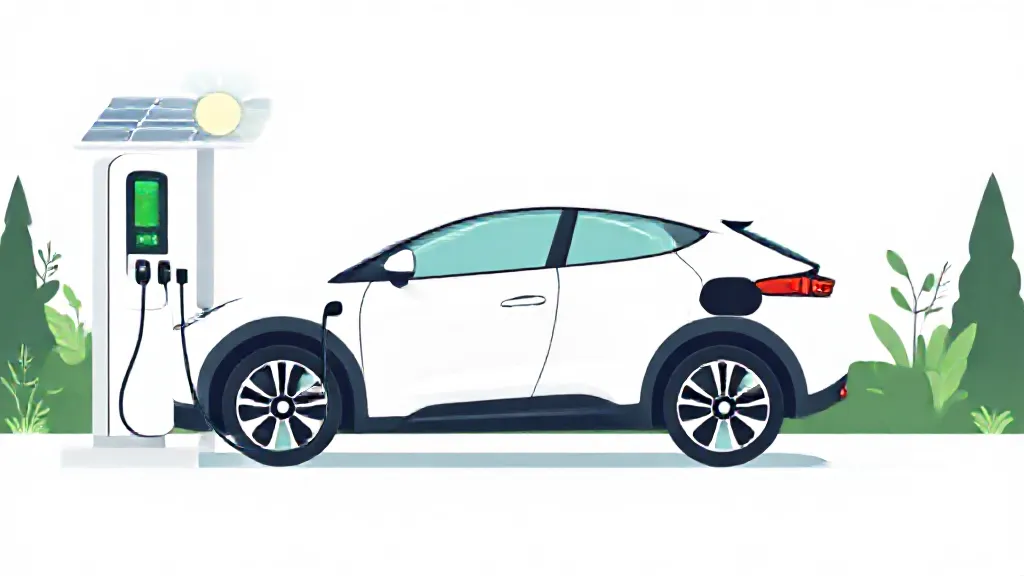The transition to electric vehicles (EVs) represents a significant step towards sustainability in our rapidly changing world. As concerns over climate change and environmental degradation intensify, the automotive industry is undergoing a transformation. Electric cars, which produce zero tailpipe emissions, are at the forefront of this change, offering a viable alternative to traditional gas-powered vehicles.
This article delves into the reasons why electric cars are considered a sustainable solution and how they contribute to a greener future.
The Environmental Impact of Traditional Vehicles
Traditional internal combustion engine vehicles are major contributors to air pollution and greenhouse gas emissions. According to the Environmental Protection Agency (EPA), transportation is one of the largest sources of carbon dioxide emissions in the United States.
In contrast, electric cars operate on electricity, which can be generated from renewable sources such as wind, solar, and hydroelectric power. This shift away from fossil fuels significantly reduces the overall carbon footprint associated with personal transportation, making electric cars an environmentally friendly option.
The Role of Renewable Energy in Electric Vehicle Sustainability
One of the most compelling arguments for electric cars is their compatibility with renewable energy sources.
As the grid becomes increasingly powered by wind, solar, and other sustainable energy forms, the emissions associated with charging electric vehicles decline dramatically. Studies have shown that when charged using renewable energy, electric cars can reduce greenhouse gas emissions by up to 70% compared to their gasoline counterparts. This synergy between electric vehicles and renewable energy is crucial for achieving long-term sustainability goals.
Technological Advancements in Battery Production
The sustainability of electric vehicles is also linked to advancements in battery technology. Lithium-ion batteries, which power most electric cars today, have seen significant improvements in efficiency, lifespan, and recyclability. Companies are investing in research to develop batteries that use less harmful materials and are easier to recycle.
The emergence of solid-state batteries, which promise higher energy density and lower environmental impact, is another exciting development on the horizon. These innovations will play a critical role in making electric vehicles even more sustainable.
Reducing Dependence on Fossil Fuels
Electric cars contribute to sustainability by reducing our dependence on fossil fuels.
The transportation sector has long been reliant on oil, a finite resource that contributes to environmental degradation and geopolitical tensions. By transitioning to electric vehicles, we can diversify our energy sources and decrease our reliance on oil. This shift not only promotes energy independence but also enhances national security by reducing vulnerability to fluctuations in oil prices and supply disruptions.
Economic Benefits of Electric Vehicles
The rise of electric vehicles also presents economic advantages. As the EV market grows, it creates jobs in manufacturing, battery production, and renewable energy sectors. Furthermore, electric cars can lead to lower operational costs for consumers.
While the initial purchase price may be higher, electric vehicles typically have lower maintenance costs and fuel expenses over their lifetime. Incentives such as tax breaks and rebates can also make electric cars more accessible, encouraging widespread adoption.
Urban Air Quality and Public Health
The environmental benefits of electric vehicles extend beyond just carbon emissions; they also significantly improve urban air quality.
Traditional vehicles emit pollutants such as nitrogen oxides and particulate matter, which contribute to respiratory problems and other health issues. By replacing gas-powered cars with electric vehicles, cities can reduce these harmful emissions, leading to healthier communities. Studies have shown that cities with higher electric vehicle adoption rates experience lower levels of air pollution, benefiting public health and overall quality of life.
Global Initiatives and Policy Support
Governments around the world are recognizing the importance of electric vehicles in achieving sustainability goals. Many countries are implementing policies to promote EV adoption, such as setting ambitious targets for phasing out internal combustion engine vehicles and investing in charging infrastructure. These initiatives are crucial for creating an environment conducive to electric vehicle growth, ensuring that consumers have access to the necessary resources to make the transition.
The Future of Electric Vehicles and Sustainability
As technology continues to evolve, the future of electric vehicles looks promising. With ongoing advancements in battery technology, charging infrastructure, and renewable energy integration, electric cars are poised to become a cornerstone of sustainable transportation. The collective efforts of governments, manufacturers, and consumers will be essential in driving this transition.
By embracing electric vehicles, we can take significant strides toward a more sustainable future, reducing our environmental impact and promoting a healthier planet for generations to come.
